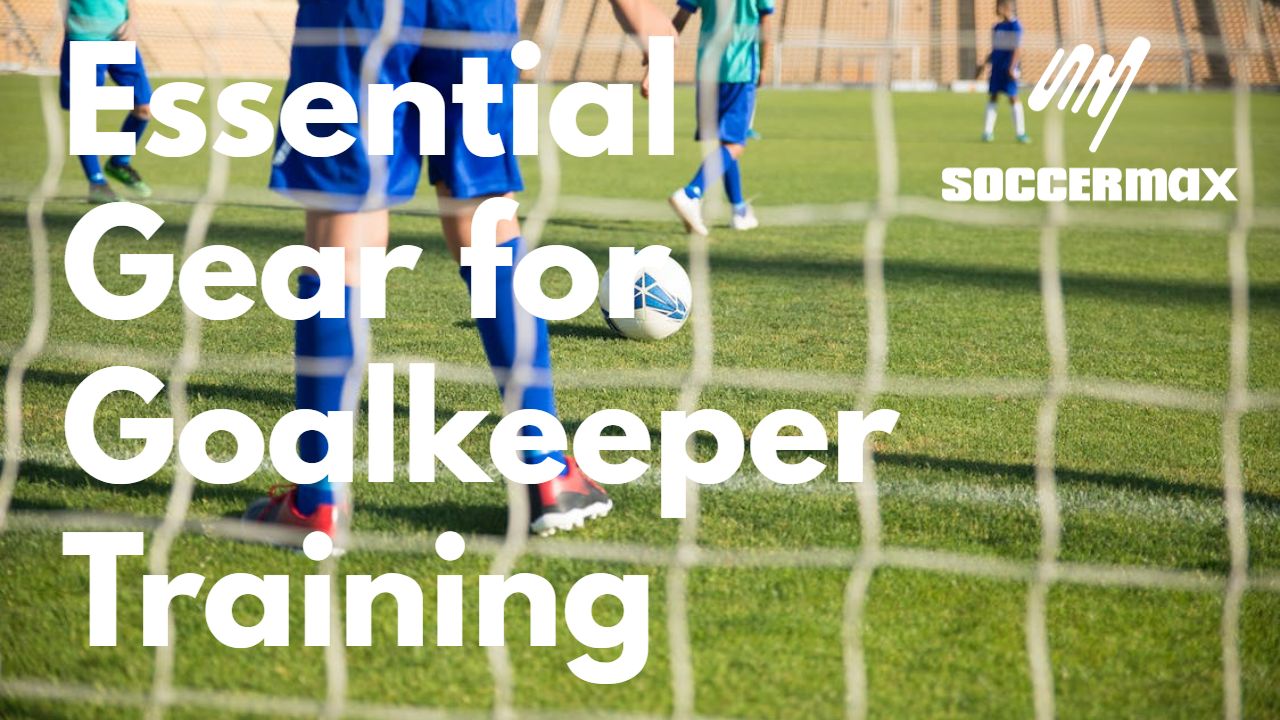Goalkeeper training is a specialized aspect of soccer that demands not only skill but also the right gear. Whether you’re a beginner honing your abilities or an experienced goalkeeper aiming for refinement, having the appropriate equipment is crucial for effective training.
Basic Equipment for Goalkeepers
Gloves
Gloves are the most fundamental gear for a goalkeeper. They offer grip, protection, and support, allowing keepers to confidently handle the ball and minimize the impact of powerful shots.

Explore our goalkeeper gloves.
Goalkeeper Jersey
A well-fitted goalkeeper jersey is designed to distinguish the goalkeeper from other players on the field. It often features padded elbows to cushion dives and protect against impact.

Explore Soccer Max Pro Uniforms.
Goalkeeper Pants/Shorts
Specifically designed to aid movement and protect against scrapes and bruises, goalkeeper pants or shorts offer comfort and flexibility during training sessions.
Specialized Gear for Advanced Training
Training Cones
Used for agility drills and positioning practice, training cones aid in developing quick reflexes and spatial awareness crucial for a goalkeeper’s performance.
Agility Ladder
Enhancing footwork and speed, an agility ladder is a valuable tool in goalkeeper training to improve movement and responsiveness.
Rebounders
Rebounders simulate various ball trajectories, enabling goalkeepers to practice different saves, improving their reflexes and ball-handling skills.
Protective Equipment
Helmets/Helmet Caps
For added protection, especially during high-impact training sessions, helmets or helmet caps reduce the risk of head injuries.
Body Armor
Body armor provides extra padding and protection to key areas, offering confidence to goalkeepers when diving or making challenging saves.
Knee and Elbow Pads
Essential for preventing injuries during dives and falls, knee and elbow pads cushion impact and minimize the risk of bruises and abrasions.
Essential Footwear for Goalkeepers
Goalkeeper Boots
Designed with extra traction and support, goalkeeper boots ensure stability and agility while providing excellent grip on various playing surfaces.
Indoor Training Shoes
For indoor training sessions, specialized shoes offer the necessary grip and support without damaging indoor surfaces.
Technology in Goalkeeper Training
Video Analysis Tools
Utilizing video analysis tools allows goalkeepers to review their performance, identify areas for improvement, and refine their techniques.
Training Apps
Various training apps offer drills, tips, and personalized training routines, enhancing a goalkeeper’s skills even outside the field.
Smart Goalposts
Innovative smart goalposts equipped with sensors provide real-time feedback on shot speed, accuracy, and positioning, aiding in refining a goalkeeper’s abilities.
Importance of Quality Equipment in Goalkeeper Training
Investing in quality goalkeeper gear isn’t just about having the latest gadgets; it’s about ensuring safety, performance improvement, and confidence on the field. The right equipment can significantly impact a goalkeeper’s training regime and overall game performance.
Conclusion
Goalkeeper training demands precision, agility, and resilience. Equipping oneself with the right gear not only enhances performance but also minimizes the risk of injuries, fostering a goalkeeper’s growth and confidence on the field.
FAQs on Goalkeeper Training Gear
1. Do I need expensive gear for goalkeeper training?
Quality gear matters more than the price. Investing in durable, well-designed equipment can significantly impact your training.
2. Are gloves the most crucial gear for a goalkeeper?
Gloves are vital, offering grip and protection, but other equipment like proper footwear and protective gear also play key roles.
3. How often should I replace goalkeeper gloves?
Replace gloves when they start losing grip or show signs of wear, usually every few months, depending on usage.
4. Can training apps replace traditional coaching for goalkeepers?
Training apps are supplementary tools. Traditional coaching provides personalized guidance that complements app-based training.
5. Is it necessary to have different footwear for indoor and outdoor training?
Yes, specialized footwear ensures optimal performance on different surfaces while preserving the longevity of the shoes.

